The Collagen Market is Booming but Does it Really Work?
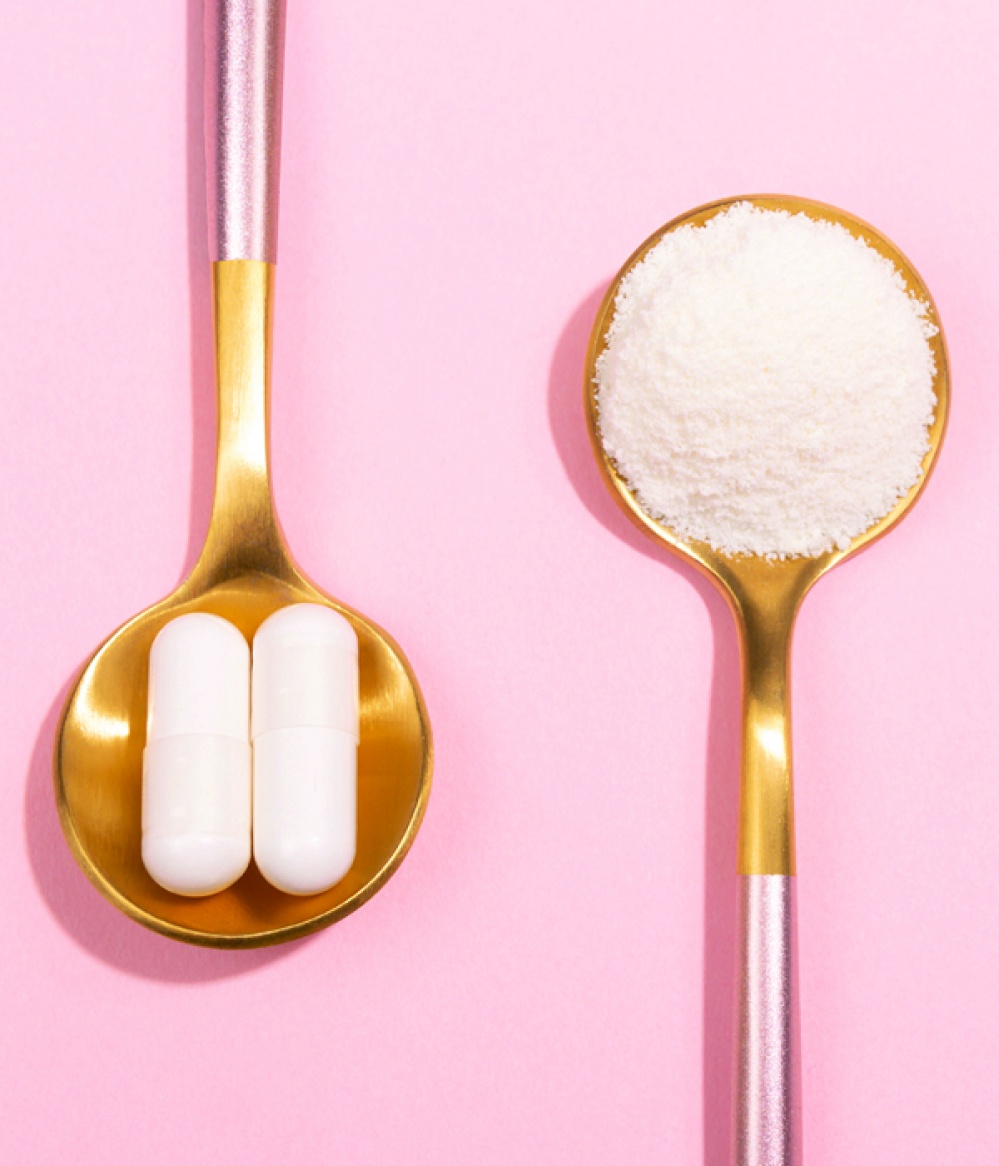
Collagen is the underlying protein that gives the skin its firmness, elasticity and ultimately its youthful bounce
As a protein found in your bones, muscles and blood, collagen is responsible for healthy joints as well as skin elasticity. It is in fact one third of the protein found in the body, but as we age, our collagen, which is produced naturally in the body, breaks down and it becomes harder to reproduce it.
Collagen works in two ways. Firstly, it supplies the building blocks for collagen and elastin production, and secondly it holds together the cells in the connective tissue to produce collagen, elastin and hyaluronic acid. We lose one percent of our collagen every year after our mid-20s, and by age 50 we will have lost at least half our entire natural collagen supply (and by 60 as much as 80 percent) – hence the meteoric rise in all forms of collagen supplements promising a boost to eternal youth.
But despite their rise in popularity, often coming with celebrity brand ambassadors, the benefits of collagen supplements continue to be debated. We are unable to absorb collagen in its whole form, but broken down in hydrolysed form it can be more readily absorbed into our blood stream (bioavailability). So although Amanda Holden and Khloé Kardashian amongst others swear by it as an anti-ageing skincare essential, is it really worth the effort – and expense?
Studies around the benefits of collagen supplements on skin tend to be small, and many are conducted by the industry, so should we believe the hype? But with a global market on track to reach over £3 billion by next year it is a message that’s becoming harder and harder to ignore.
Read More: The Benefits of Dry Body Brushing and Why You Should Be Doing It
Most experts accept that collagen is critical to maintaining good health, and whilst there is some evidence to suggest collagen supplements can help keep skin more hydrated, boost hair and nail growth, help relieve joint pain, and help make bones denser, more research is still needed.
On the upside, the side effects of taking collagen supplements are rare, although if you are pregnant or breast feeding advice suggests you leave alone until more research is available. So whilst all of the above benefits are to be welcomed, as is the possibility of more youthful skin, there are other ways of helping your body produce more collagen naturally through your diet.
To produce collagen your body combines the amino acids glycine and proline with other amino acids including vitamin C, zinc and copper, so it naturally follows that by eating more glycine- and proline-rich foods including chicken, beef, fish, dairy, egg whites, asparagus, mushrooms and beans you are helping yourself, to help yourself. Boost vitamin C intake with citrus fruits, tomatoes, leafy greens, shellfish, nuts and whole grains.
Whilst eating a protein-rich diet will help, be aware other factors will deplete collagen levels even faster, including sun bathing, alcohol, smoking and pollution. If you do decide to invest in a course of supplements choose carefully from the plethora of powders, drinks, and tablets available. Marine collagen is thought to be the fastest acting, and there are plenty of vegan options too but always seek out those with a low molecular weight (which means higher bioavailability) for better absorption, and additional antioxidants such as vitamin C essential for collagen production.
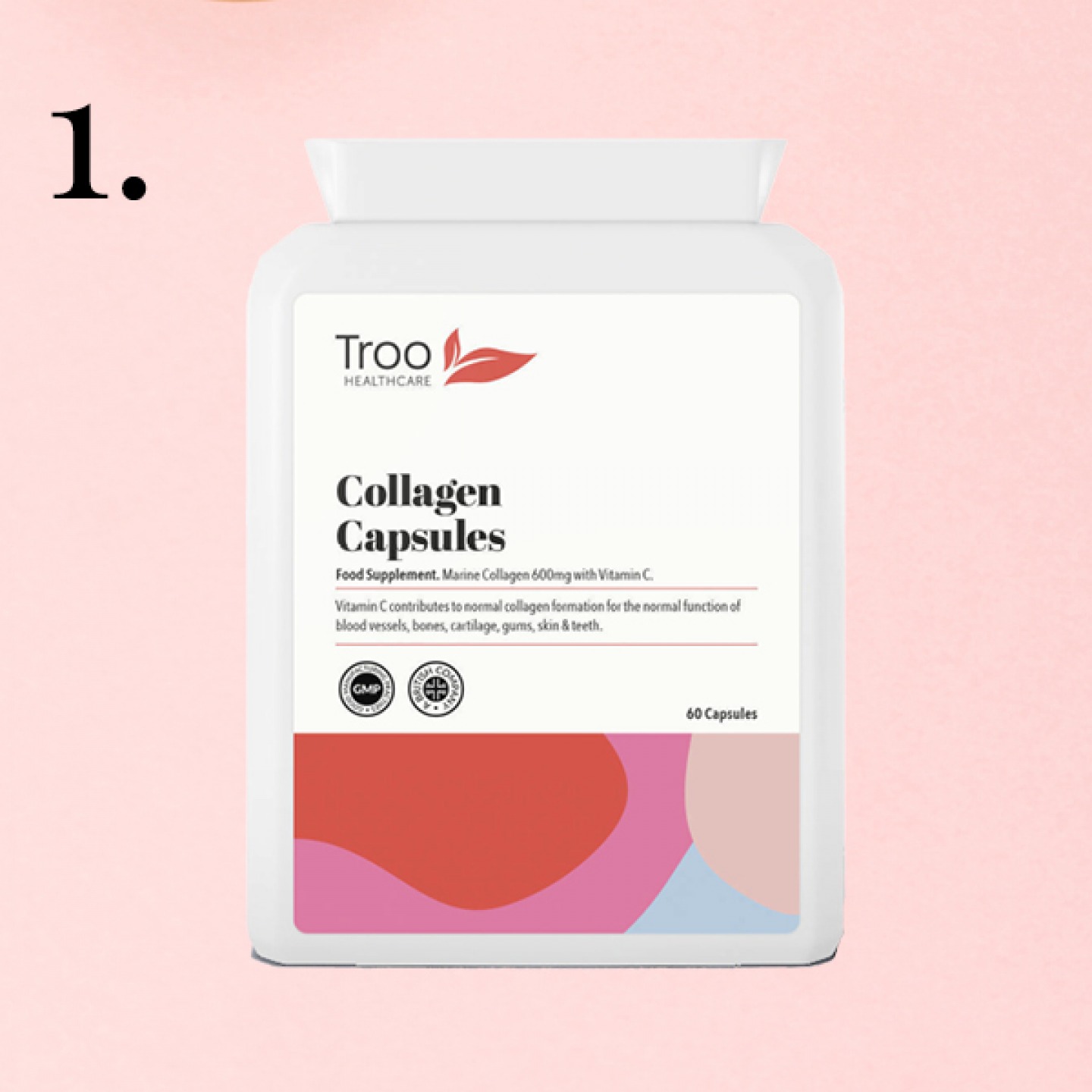
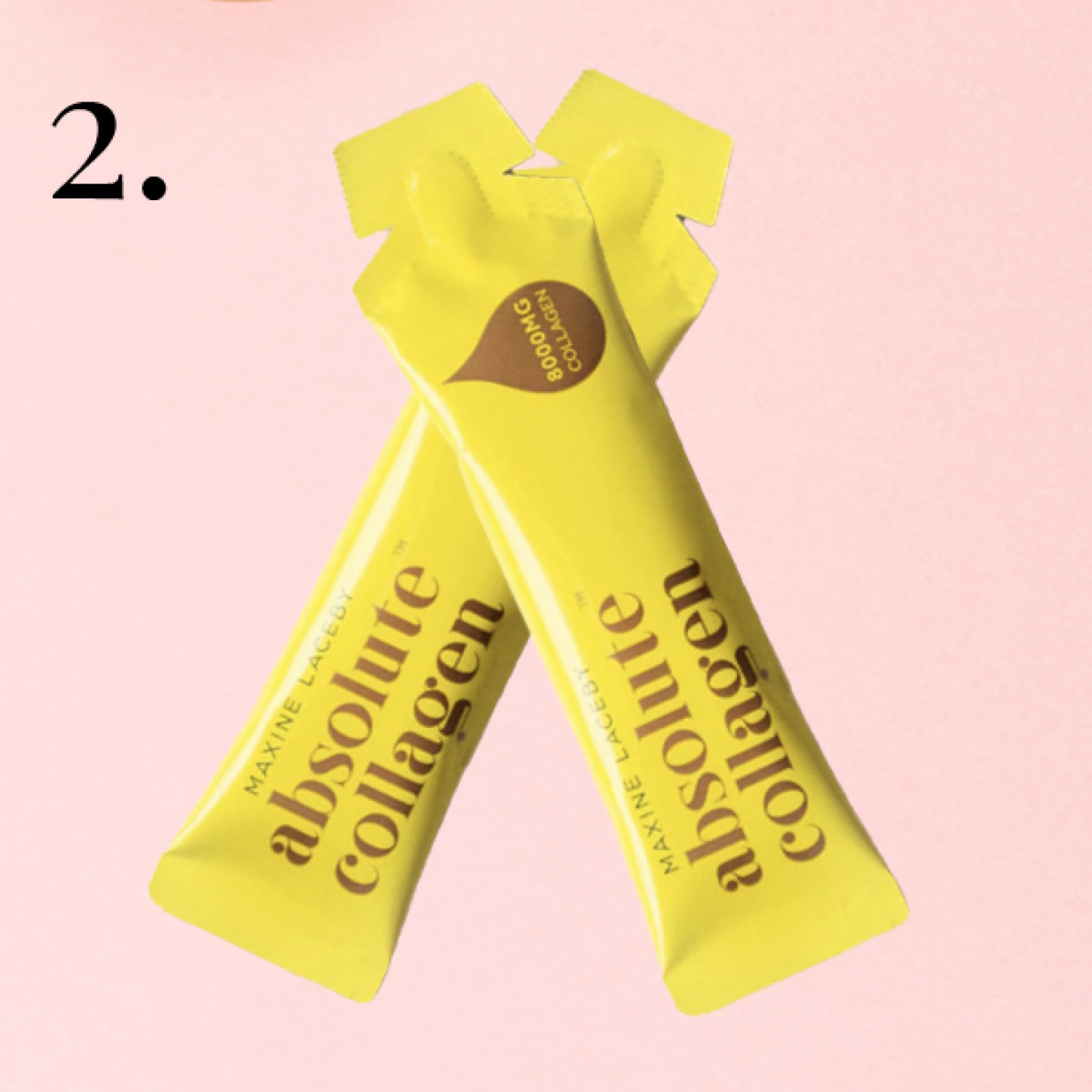
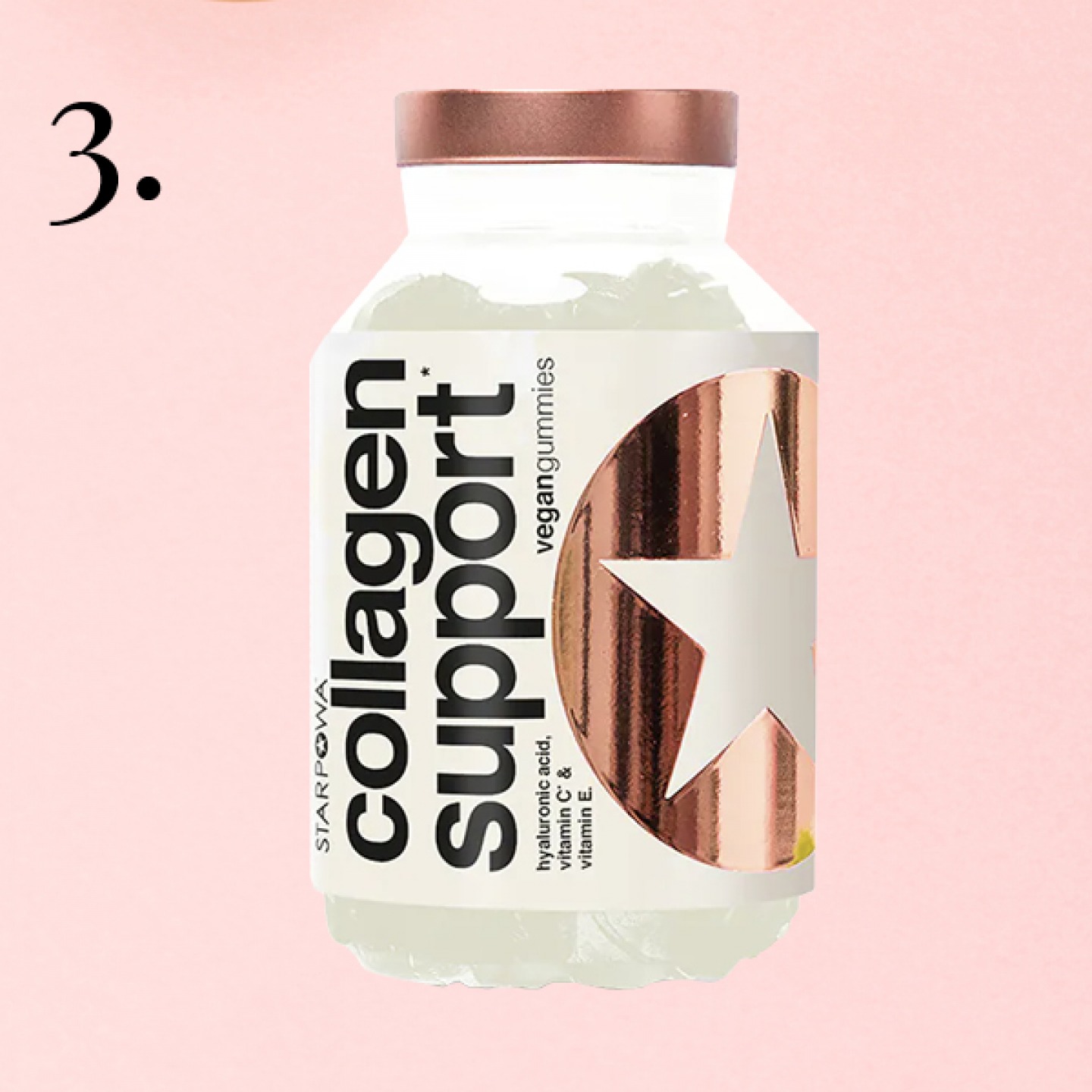
1. Hydrolysed Marine Collagen plus Vitamin C (60 capsules), £12.97 troohealthcare.com
2. Collagen Daily Drink, (14 sachets 10ml), £26.99, Absolute Collagen, stockists regionwide
3. Vegan Collagen Support Gummies (60 gummies), £39.99 Starpowa, stockists regionwide
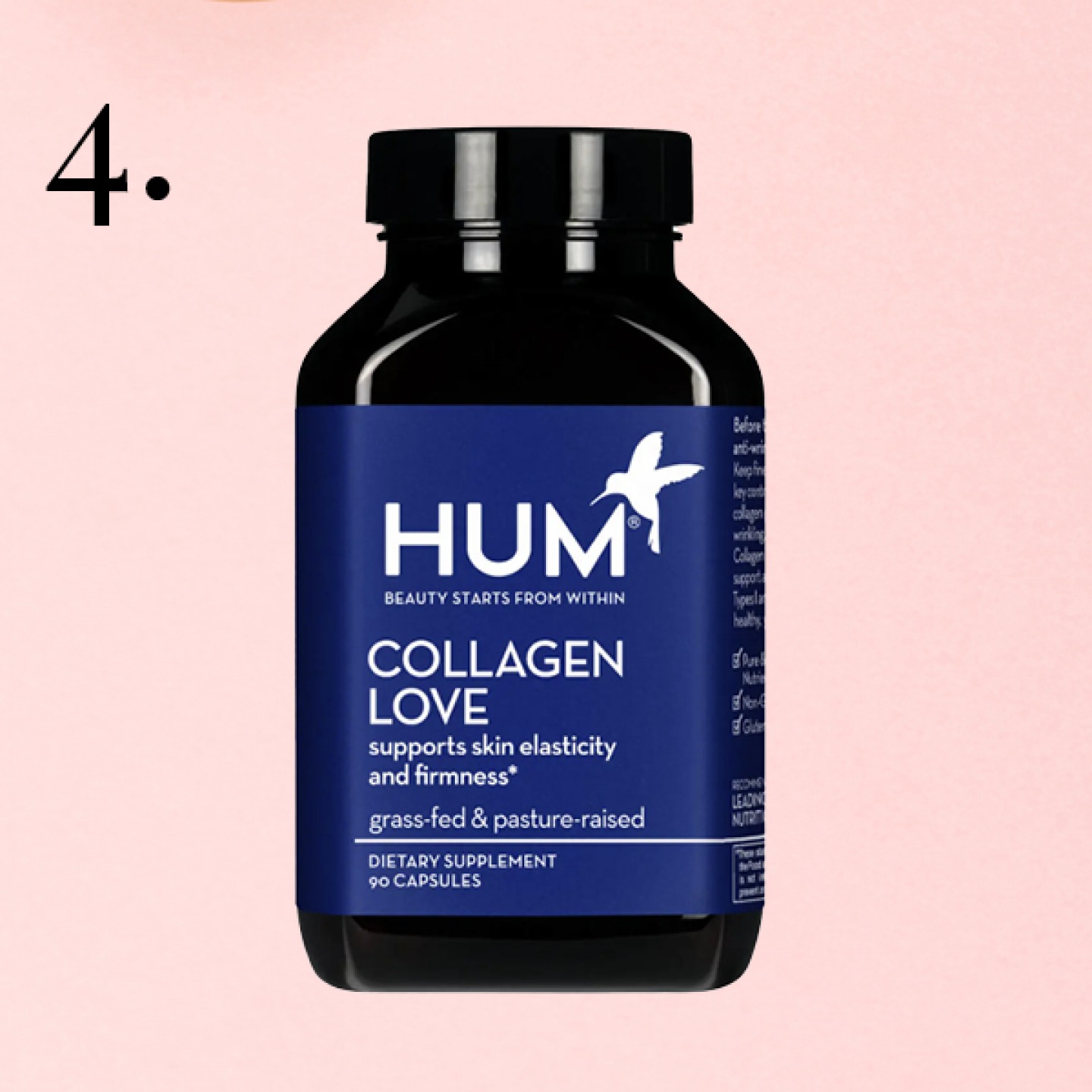
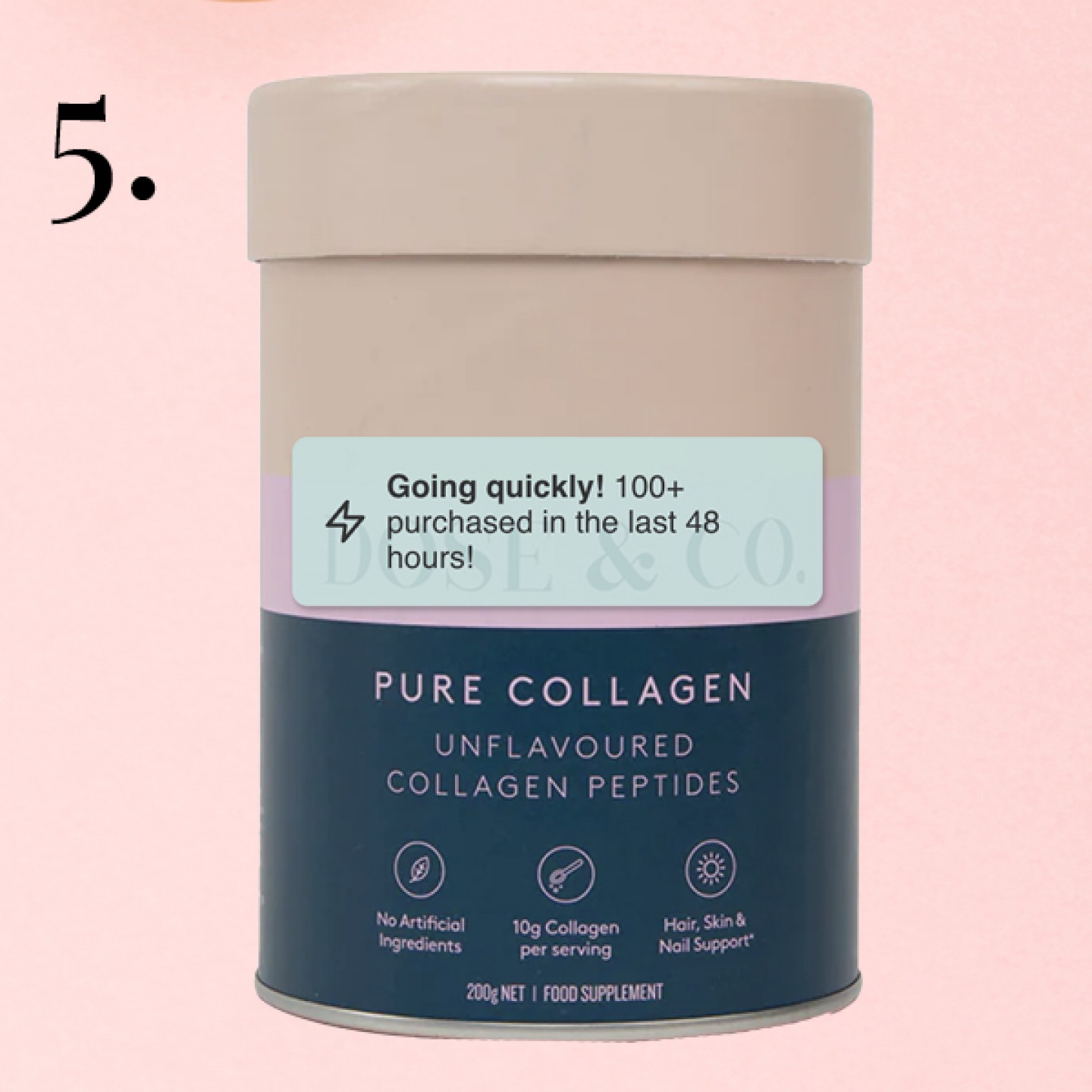
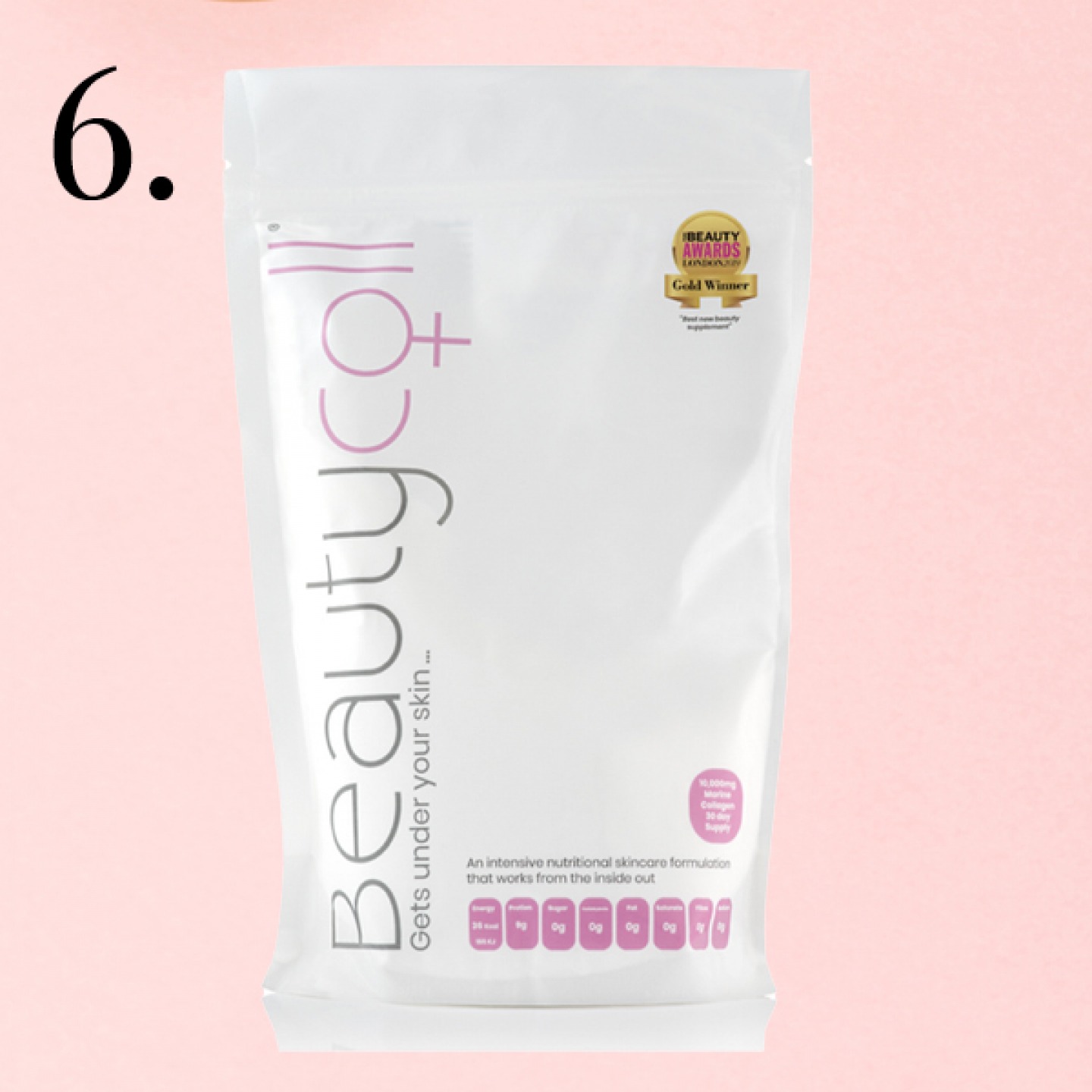
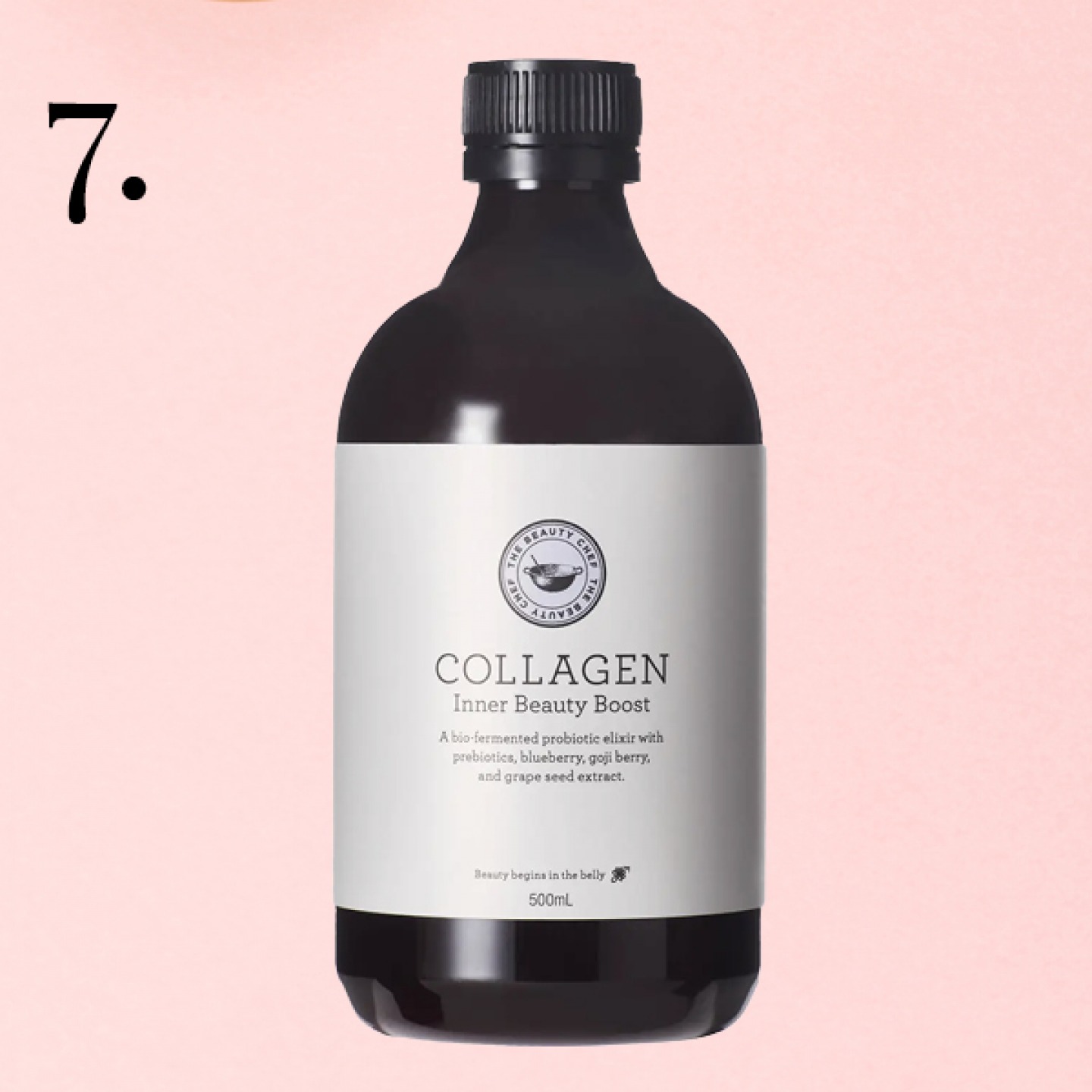
4. Collagen Love (90 capsules), £44 HUM at cultbeauty.co.uk
5. Marine Collagen Powder, £26.99 Dose & Co at Holland & Barrett, branches regionwide
6. Collagen + Multi Vitamin Drink (30 Days), £47.99 beautycoll.co.uk
7. Collagen Inner Beauty Boost, £16 The Beauty Chef at John Lewis & Partners, Newcastle







